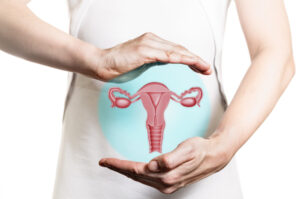Early menopause, also known as premature ovarian insufficiency (POI), occurs when a woman’s ovaries stop functioning before the age of 40. This condition can bring emotional and physical challenges, as it impacts fertility, bone health, and overall well-being. While some causes of early menopause, such as genetics or autoimmune disorders, cannot be prevented, adopting healthy habits and making informed lifestyle choices can reduce the risk and delay its onset.
What Causes Early Menopause?
Before diving into prevention, it’s essential to understand the factors that contribute to early menopause. These include:
- Genetic predisposition: A family history of early menopause increases the likelihood.
- Autoimmune diseases: Conditions like lupus or rheumatoid arthritis can damage ovarian function.
- Medical treatments: Chemotherapy, radiation, or surgical removal of the ovaries can induce early menopause.
- Lifestyle factors: Smoking, poor diet, chronic stress, and exposure to environmental toxins can hasten ovarian aging.
Can Early Menopause Be Prevented?
While not all cases can be avoided, there are steps women can take to preserve ovarian health and delay menopause. Here’s how:
1. Adopt a Healthy Diet
Nutrition plays a significant role in hormonal balance and ovarian health. Read more about How To Protect Ovarian Health.
- Antioxidant-rich foods: Include fruits, vegetables, nuts, and seeds to combat oxidative stress, which accelerates ovarian aging.
- Healthy fats: Omega-3 fatty acids, found in fish, flaxseeds, and walnuts, support hormone production.
- Iron and folate: These nutrients, found in leafy greens and legumes, are essential for reproductive health.
- Limit processed foods: Excessive sugar and unhealthy fats can disrupt hormonal balance.
2. Maintain a Healthy Weight
Both underweight and overweight women are at risk of hormonal imbalances that can affect ovarian function. Aim for a balanced weight through regular exercise and mindful eating.
3. Exercise Regularly
Physical activity boosts overall health and supports hormonal regulation.
- Opt for moderate exercises like walking, yoga, or swimming.
- Include weight-bearing exercises to strengthen bones, which are at risk of weakening post-menopause.
4. Quit Smoking
Smoking accelerates ovarian aging and damages eggs, leading to earlier menopause. Quitting not only preserves ovarian health but also improves overall fertility and reduces the risk of chronic diseases.
5. Manage Stress
Chronic stress disrupts the delicate balance of reproductive hormones, potentially affecting ovarian function.
- Practice relaxation techniques such as mindfulness, meditation, or deep breathing.
- Engage in hobbies or activities that bring joy and reduce stress.
6. Minimize Exposure to Environmental Toxins
Certain chemicals in the environment can mimic or interfere with hormonal activity, leading to ovarian damage.
- Avoid plastics containing BPA and limit exposure to pesticides.
- Choose natural or organic personal care products when possible.
7. Stay on Top of Medical Check-Ups
Regular visits to your healthcare provider can help detect early signs of hormonal imbalances or conditions that may lead to early menopause.
- Monitor thyroid and autoimmune markers if you have a family history of related conditions.
- Discuss any irregular menstrual patterns with your doctor.
8. Consider Fertility Preservation for Medical Treatments
If you need chemotherapy, radiation, or surgery involving the ovaries, consult your doctor about fertility-preservation techniques like egg freezing. These can help safeguard your reproductive options.
9. Support Your Ovaries with Supplements
Some supplements may support ovarian health and delay menopause:
- Vitamin D and calcium: Essential for bone health, especially if early menopause is a concern.
- Coenzyme Q10: An antioxidant that may protect ovarian function.
- Phytoestrogens: Found in foods like soy and flaxseeds, these plant-based estrogens may support hormonal balance.
Always consult a healthcare provider before starting any supplements.
Why Prevention Matters
Preventing early menopause is not just about prolonging fertility—it’s about safeguarding overall health. Early menopause increases the risk of:
- Osteoporosis: Due to declining estrogen levels, bones may become weaker earlier than expected.
- Heart disease: Estrogen protects cardiovascular health, and its loss can increase risk factors.
- Mental health challenges: Hormonal fluctuations can lead to mood swings, anxiety, and depression.
By taking preventive measures, you can reduce these risks and enjoy better health throughout your life.
Final Thoughts
While early menopause cannot always be avoided, proactive steps can help protect ovarian health and delay its onset. Small changes in diet, exercise, and stress management can make a significant difference.
If you have concerns about early menopause or wish to explore prevention strategies tailored to your needs, consult a healthcare professional. Early intervention is key to maintaining your reproductive health and overall well-being.
Need advice on fertility and menopause care? Contact us today for expert guidance on managing your ovarian health. Your health is our priority!

